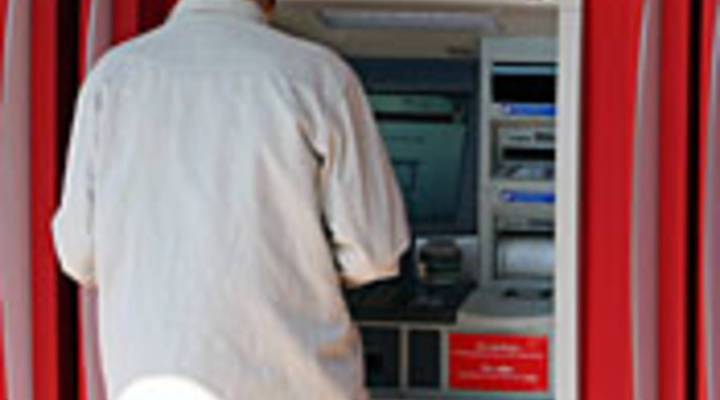
New bank fees are aimed at lower income customers

TEXT OF STORY
Kai Ryssdal: New financial regulations are nibbling away at some of the most profitable and reliable sources of income the banks have. Rules for credit cards and overdraft fees have cut tens of billions of dollars out of their profits. Proposed regulations for merchant fees would cost them billions more.
So maybe nibbled away wasn’t the right phrase, and the banks aren’t suffering silently. Instead, they’ve been finding new ways to make money: new fees charging for things like checking accounts and paper statements. That’s hitting an already underserved segment of the financial population especially hard.
Marketplace’s Stacey Vanek Smith reports from New York.
Stacey Vanek Smith: Things you can expect to pay a fee for this year: not having enough money in your checking account, not having multiple accounts with a bank, not doing your banking online. All of that could hit lower income customers especially hard, says Mike Moebs, an economist who advises banks.
Mike Moebs: They’re basically shedding themselves of accounts that they can’t make any money at.
Namely the checking accounts of lower income people. Those accounts used to generate a big chunk of overdraft fees, says Sarah Ludwig, co-director at the Neighborhood Economic Development Advocacy Project in New York. She says now that new regulations limit overdraft, banks are aiming fees at lower income customers.
Sarah Ludwig: The new round of fees that we’re seeing by the large banks definitely fall disproportionately on lower income people.
Ludwig says her organization has spent years encouraging clients to use bank accounts instead of relying on check cashing and pawn shops. But new fees will make that harder.
Ludwig: So now we’ve got people who are told over and again you should have a bank account, that that’s the responsible thing to do, that’s the safe thing to do — having to face the fact that, it can be quite prohibitive to do that banking with them.
Ludwig says that will drive lower income people out of the banking system.
Ludwig: Now we’ve got the further perpetuation of a two-tiered credit system where we have a separate, unequal system serving higher income people from the one serving lower income people, and this new round of fees is just going to push more people out of the banking system and continue that bifurcation.
Which is what banks ultimately want, says bank consultant Ken Thomas.
Ken Thomas: Banks cannot put a sign in the window that says ‘We will give better service and charge lower fees to rich people.’ They can’t do that. So they tier their products, their pricing to have the same effect.
Bank economist Mike Moebs expects we’ll see lower income customers leaving bigger banks for cheaper options like credit unions.
In New York, I’m Stacey Vanek Smith for Marketplace.
There’s a lot happening in the world. Through it all, Marketplace is here for you.
You rely on Marketplace to break down the world’s events and tell you how it affects you in a fact-based, approachable way. We rely on your financial support to keep making that possible.
Your donation today powers the independent journalism that you rely on. For just $5/month, you can help sustain Marketplace so we can keep reporting on the things that matter to you.












